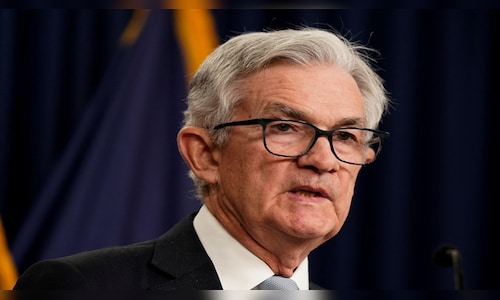[ad_1]
Speaking at a conference in Arlington, Virginia, on Friday, Powell said the Fed remains committed to bringing inflation down to its 2% target but acknowledged that progress has slowed in recent months.
“Our obligation is to keep longer-term inflation expectations well anchored to ensure that a one-time increase in prices does not become a persistent inflation problem,” he said.
The US labour market continues to show resilience. The March jobs report, released earlier in the day, showed a robust addition of 2.28 lakh jobs, with unemployment inching up to 4.2%, still considered low by historical standards.
However, Powell warned that the recently announced tariffs — larger than expected — have added a fresh layer of uncertainty.
“We are closely watching the divergence between hard data and soft data,” he said, referring to weakening business sentiment despite strong job and output numbers.
Surveys indicate a dip in consumer and business confidence, which Powell attributed to the lingering effects of previous inflation.
“Much of the public’s dissatisfaction with the economy stems from earlier price increases,” the Fed chair said.
While the Fed has not issued a recession forecast, Powell noted that outside analysts have increased their recession probabilities.
For instance, JPMorgan Chase has significantly raised the probability of a recession, citing both the inflationary effects of tariffs and the risk of demand destruction.
Financial markets have also taken a hit, with the S&P 500 falling nearly 3% on Friday, following China’s retaliatory tariffs and President Trump’s renewed pressure on the Fed to cut rates.
At present, futures markets are pricing in four rate cuts between June and October, expecting the Fed to bring down rates from the current 4.25–4.5% to 3.25–3.5%. However, Powell’s remarks suggest a more cautious stance.
[ad_2]
Source link










